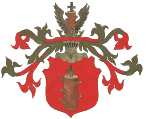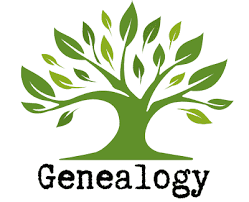
Recently, I am reading a lot about people getting interested in their roots. Usual avenues to trace them are through Ellis Island records, Mormon Church archives and popular websites such as ancestry.com, genealogy.archives.org and so on. It is becoming quite a popular pastime, and I see many retired persons in the library doing just that.
From the certain age, children find out, that the world didn’t start on the day they were born and then curiosity takes over. The best thing to find out about your ancestors is, of course, from your parents and grandparents. But when parents don’t know and grandparents are no longer around, then we have a problem. In this country still the most common heritage is European. But even when one finds out where his ancestors are originating from, not knowing anybody there can be an obstacle, and knowing the language can make things even worse.
When I came to this country, Polish heritage was not something to be particularly proud of. I’ve learned many jokes and heard quite a few comments, not necessarily uplifting. I was afraid that my children would try to hide my ethnicity and their roots, although with the name like ours would be tough. But it was not a case. They embraced our origins. When questioned, some of them said they are Polish, some that they are half-Polish, but not one was trying to dodge the issue. Then they found out the true meaning of our last name. The translation is, that we “don’t listen”. And then they liked it even more. It provided an easy excuse for many shenanigans.
At a certain point, we decided to take our family to the place I grew up. I wanted to show them my apartments, schools, university and the rich heritage of my country. I wanted to introduce them to my friends and show that there was life before they were born.
So, we started with my older son when he was 10. Bonnie was afraid, that we will lose each other on a long trip, she fitted him with a bright, red jacket. No room for accidents.
After arrival in Warsaw, we had problems with adjusting to the 9-hour time difference. My son slept during the day, was awake at night. Couldn’t sleep, couldn’t eat, and was complaining about stomach pains. I was even thinking of appendicitis and then to which hospital to take him to see a doctor. But then something struck me: could it be food? My Mom’s excellent ethnic kitchen? So I took him to the American Embassy and asked a Marine to show us, where their cafeteria is. There we ordered a hamburger with french fries and voilà, my son was miraculously healed. Can you imagine? All he needed was a hamburger!
Some trips were made with my wife, then boys again, and then with the girls. How is that for father-boys and father-girls field trips?
Then came the story of our heritage. Our name originated in the 13th century. It was given by the commander to a soldier, who didn’t listen to his orders on the battlefield. Our family also has a coat of arms, the picture of which drawn on handmade, old fashion rough paper I showed to them (herb Nieczuja). There is also a small village north of Warsaw, which has our name and where my Father’s family was living for centuries. ” You can google it” I said to them. And here it is – Niesluchy. I still remember visiting that place as a child. It looked to me like a transplant from the 19th century. It was impressive for me to see how big a leap my Father made from there to becoming a legal advisor to one of the biggest Polish corporations.
And here we have it. My children and their children won’t have to look any more through the archives and spend time on the internet looking for our roots.
The mystery veil has been lifted.


